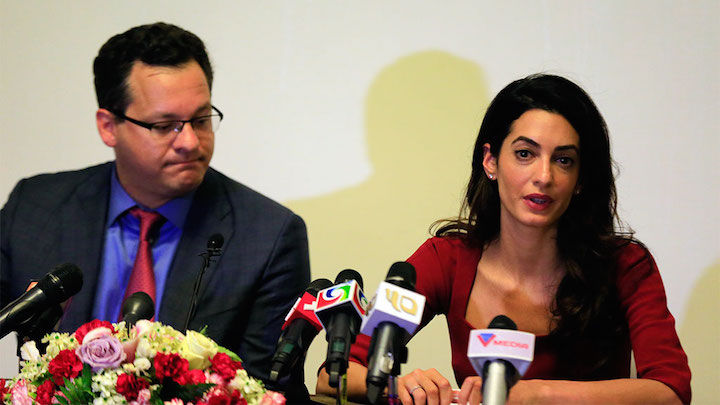Lawyers defend call for targeted sanctions to secure Nasheed’s release
Reiterating calls for targeted sanctions against Maldivian government officials if Nasheed is not released, the opposition leader’s international lawyers Amal Clooney, Jared Genser, and Ben Emmerson said his case is “emblematic of a broader, brutal crackdown on democracy and human rights involving not only the former president, but also large parts of the population.”

25 Sep 2015, 09:00
Former President Mohamed Nasheed’s high-profile international lawyers have reiterated calls for targeted sanctions against Maldivian government officials if the opposition leader is not released in the wake of an expected UN judgment declaring his imprisonment unlawful.
Nasheed’s lawyers Amal Clooney, Jared Genser, and Ben Emmerson filed a petition at the UN working group on arbitrary detention in late April. Nasheed was sentenced to 13 years in prison on terrorism charges in March.
Following a visit to the Maldives earlier this month, Clooney and Genser expressed confidence that the specialised UN agency will rule in Nasheed’s favour and said they will pursue targeted sanctions if the government fails to abide by the ruling.
A judgment will be made public in mid-October.
Become a member
Get full access to our archive and personalise your experience.
Already a member?
Discussion
No comments yet. Be the first to share your thoughts!
No comments yet. Be the first to join the conversation!
Join the Conversation
Sign in to share your thoughts under an alias and take part in the discussion. Independent journalism thrives on open, respectful debate — your voice matters.




